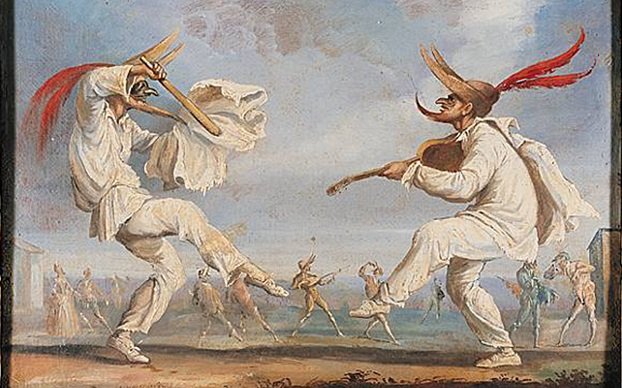Origin and development of the comedy
In ancient Greece as a procession of drunken revelers ("comos") during the Dionysians. Aristotle grasps her as imitation of bad people, but not in all their wickedness, where funny is part of the ugly. In its emergence, comedy sees in itself something more than a lazy laugh, touching on morality, the principles of human society. Aristophan transforms it into a self-contained world, affecting all the essential features of the life of its time. Plato believes that comedy nourishes the weak, low side of the soul and is an inappropriate and unfavorable environment. The new Attic comedy deals with serious motives that make it more poignant than funny.
The focus and definition of comedy shifts - it becomes dramatic and bitter and opposes the divine-heroic motives and ceases to be an adequate literal form of funny. The Middle Ages (like Plato) are hostile to funny and comedy, and for reasons similar to Plato's. In the Middle Ages, dramatic, melodramatic, poignant motives (mysteries, miracles and morals) predominate, convincing, inspiring, and solving. The late Middle Ages gave birth to the farce. It includes everything that interests a person in his everyday life, expressing the aesthetic needs of the urban plebe. In the late Middle Ages, comedy and tragedy are synonymous with merry and sad epic narratives. Dante breaks with the traditions of the ancient concept of comedy and creates not only a new work, but also something unknown until then as a principle ("Divine Comedy"). Dante's work is called a comedy (originally only "Comedy") about everything else, but not because it causes laughter.
Later, 'comedy' is used to express the view that life is a performance in which everyone plays a role. The Renaissance funny - raising individuality over mass folly and impersonality. Commedia dell'arte - improvisation, freedom of dialogue; seclusion. The Renaissance, opposed to the Middle Ages (motionlessness), the movement associates the funny with the idea of dynamics; wandering. Moliere (XVII century) begins the European comedy with his comic models. There is partial emotional indifference, lack of sympathy, compassion for the funny. Sadness of compassion and compassion is an adequate response. In the comedy: antithesis - shifting from one situation to another contamination - plunging into relative totality of the situation and its negation.

This post has received a 6.79 % upvote from @boomerang.